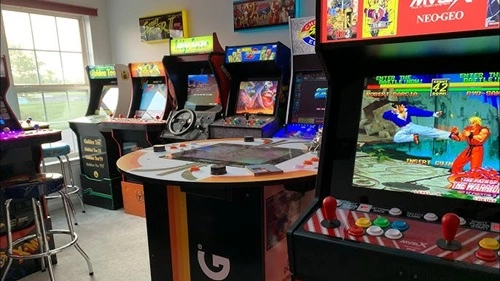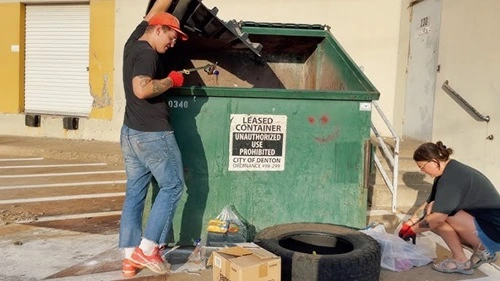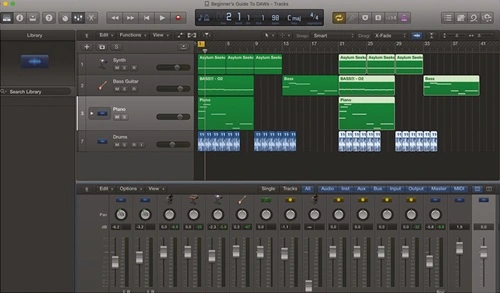Yes, shaking arcade machines can be illegal under certain circumstances. While there is no specific federal law against shaking arcade machines, such behavior may violate local laws, venue rules, or even state statutes if it causes damage, constitutes theft, or disrupts public order.
Legal Implications of Shaking Arcade Machines
Shaking arcade machines is often associated with attempts to manipulate the outcome of games or retrieve coins. Depending on the context, this action can lead to various legal consequences, including charges for theft, vandalism, or disorderly conduct.
1. Theft or Fraud
- Shaking an arcade machine to influence the game’s outcome or retrieve coins could be considered theft or fraud.
- Most states have laws against tampering with coin-operated machines. For example, in California, Penal Code Section 537(a) prohibits manipulation of coin-operated machines for free use or unauthorized rewards. Similar laws exist in other states.
2. Vandalism
- If shaking the machine causes physical damage, such as breaking internal components or cracking screens, it may constitute vandalism. Vandalism charges can range from misdemeanors to felonies, depending on the damage’s monetary value.
3. Trespass or Breach of Venue Rules
- Many venues, such as arcades and entertainment centers, have posted rules against tampering with or damaging machines. Violating these rules can lead to expulsion or trespass charges if the offender refuses to leave.
4. Disorderly Conduct
- Aggressively shaking an arcade machine in a public setting may disturb other patrons or create a safety hazard, potentially leading to disorderly conduct charges.
Owner and Operator Protections
Arcade machine owners and operators are legally protected from actions that damage their property or disrupt business operations:
- Civil Liability: Owners can sue individuals who damage arcade machines for the cost of repairs or lost revenue.
- Surveillance Evidence: Many arcades are equipped with surveillance cameras to monitor tampering or vandalism. Recorded footage is often used as evidence in legal proceedings.
State-Specific Laws
Several states have specific laws addressing tampering with coin-operated machines:
- Florida: Under Section 817.40 of the Florida Statutes, tampering with coin-operated machines is a misdemeanor offense.
- Texas: Penal Code Section 32.44 makes it illegal to manipulate a coin-operated machine with fraudulent intent.
- New York: Section 165.15(4) of the New York Penal Law prohibits the manipulation of coin devices to avoid payment.
These laws generally cover a range of devices, including vending machines, parking meters, and arcade machines.
Potential Penalties for Violations
Penalties for shaking arcade machines vary based on the severity of the offense:
1. Fines: Minor offenses may result in fines ranging from $100 to $1,000, depending on the jurisdiction.
2. Imprisonment: Misdemeanor charges can lead to jail time of up to one year, while felony vandalism or theft may result in longer sentences.
3. Restitution: Offenders may be required to pay for damages or lost revenue caused by their actions.
Ethical and Social Considerations
Even if legal consequences are avoided, shaking arcade machines raises ethical concerns. Such actions undermine fair play, create unnecessary wear and tear on equipment, and disrupt the experience for other patrons. It is always advisable to follow the rules and respect the venue’s property.
Related FAQs
Q1. Is shaking a pinball machine illegal?
Ans: Shaking a pinball machine to manipulate gameplay may violate local or state laws if it causes damage or disrupts the game’s intended operation. Many pinball machines also have built-in tilt mechanisms to prevent tampering.
Q2. What should I do if an arcade machine eats my money?
Ans: Report the issue to the venue staff. Most arcades have policies for refunding lost coins or credits due to machine malfunctions.
Q3. Are there legal consequences for children who shake arcade machines?
Ans: While minors may face fewer legal consequences, parents or guardians could be held liable for damages caused by their child’s actions.
Q4. Can arcade owners press charges for shaking a machine?
Ans: Yes, owners can press charges for theft, vandalism, or disorderly conduct if shaking a machine causes damage or disrupts business operations.
Q5. Are arcade machines designed to withstand shaking?
Ans: Arcade machines are designed for durability but not for excessive force. Shaking can damage internal components or cause malfunctions.
Conclusion
Shaking arcade machines may seem like a harmless act, but it can lead to significant legal consequences if it results in damage, theft, or disruption. Understanding and respecting the rules of the venue and the law is essential for ensuring fair play and maintaining a safe environment for everyone. When in doubt, report any issues with the machine to the arcade staff instead of attempting to fix or manipulate it yourself.


